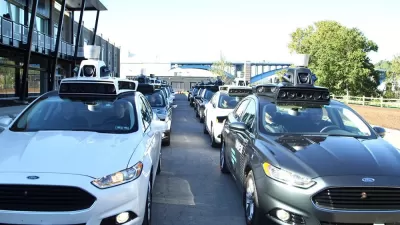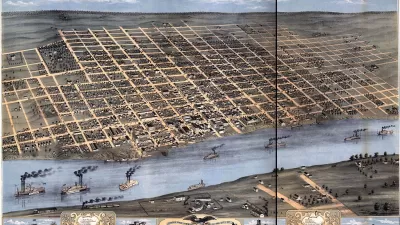As theorists predict we are entering the age of the city, Boston Globe architecture critic Robert Campbell reflects on what this shift will mean and how Boston's landscape will change as a result.
"Cities have two qualities: They're densely populated, and they mix a lot of different kinds of people and activities close together. As a result, you're not in a car all the time, burning carbon to get from place to place. You're in touch with your neighbors. Your apartment can be heated or cooled more efficiently than your cousin's home in the suburbs. (We're not yet a leader in the energy race. The Swedish city of Gothenburg, with a climate as harsh as Boston's, now heats itself entirely with recycled garbage.)
Author Richard Florida writes that the successful cities of the future will be the ones that can attract what he calls "the creative class." Boston is more richly endowed with great universities than any other US metropolitan area, and it's blessed with dozens of compact, livable neighborhoods, from Somerville in the north to Dorchester in the south. If we can't attract and retain a creative class, nobody can.
Cities have another quality, too. They introduce different kinds of people to one another. The great urbanist Jane Jacobs defined a city as "the place where we meet strangers." In a world torn by ethnic strife, that is another of the city's gifts to civilization.
A half century of suburban sprawl is drawing to a close. A new age of the city is dawning."
FULL STORY: Into the future

Maui's Vacation Rental Debate Turns Ugly
Verbal attacks, misinformation campaigns and fistfights plague a high-stakes debate to convert thousands of vacation rentals into long-term housing.

Planetizen Federal Action Tracker
A weekly monitor of how Trump’s orders and actions are impacting planners and planning in America.

In Urban Planning, AI Prompting Could be the New Design Thinking
Creativity has long been key to great urban design. What if we see AI as our new creative partner?

King County Supportive Housing Program Offers Hope for Unhoused Residents
The county is taking a ‘Housing First’ approach that prioritizes getting people into housing, then offering wraparound supportive services.

Researchers Use AI to Get Clearer Picture of US Housing
Analysts are using artificial intelligence to supercharge their research by allowing them to comb through data faster. Though these AI tools can be error prone, they save time and housing researchers are optimistic about the future.

Making Shared Micromobility More Inclusive
Cities and shared mobility system operators can do more to include people with disabilities in planning and operations, per a new report.
Urban Design for Planners 1: Software Tools
This six-course series explores essential urban design concepts using open source software and equips planners with the tools they need to participate fully in the urban design process.
Planning for Universal Design
Learn the tools for implementing Universal Design in planning regulations.
planning NEXT
Appalachian Highlands Housing Partners
Mpact (founded as Rail~Volution)
City of Camden Redevelopment Agency
City of Astoria
City of Portland
City of Laramie





























